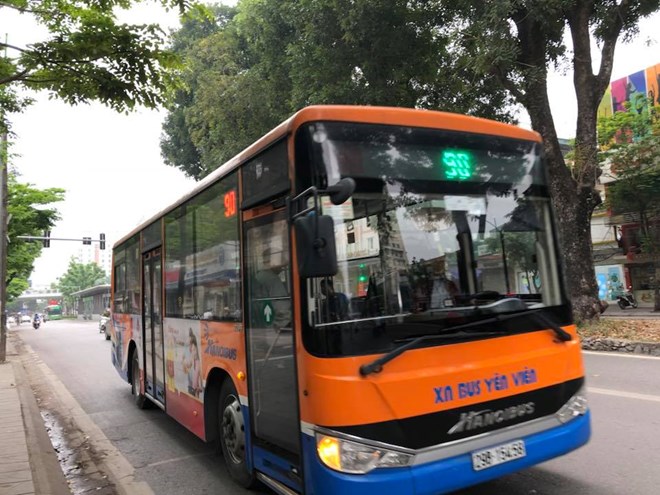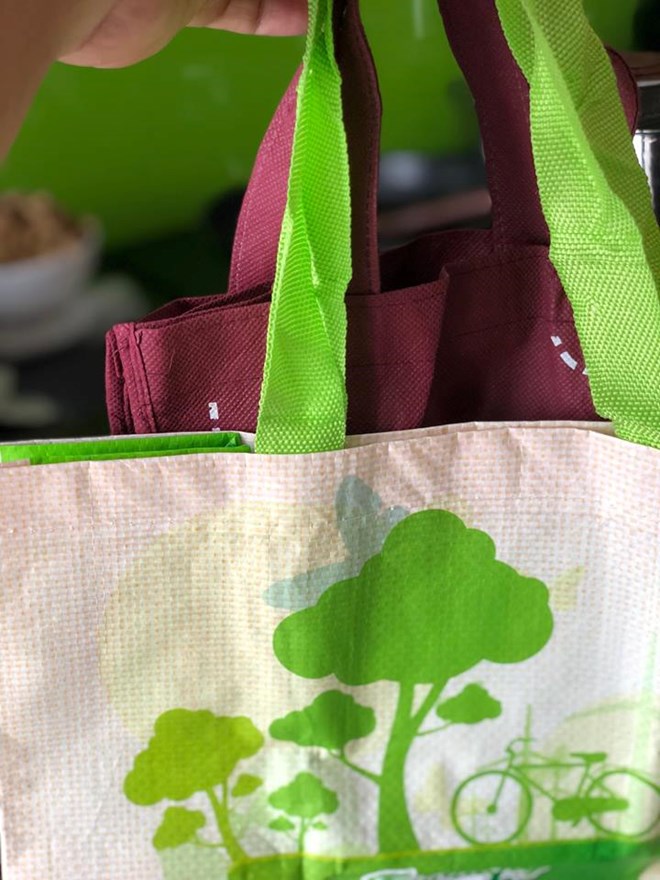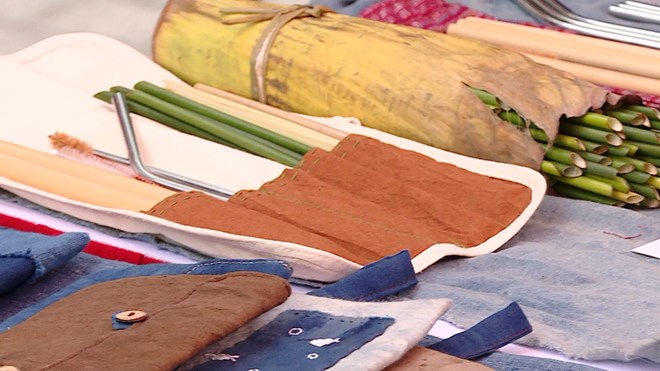The “7 Day Challenge” campaign, an initiative from Sweden, has arrived in Vietnam. It encourages the participants to eat, move and live without harming the environment.

Swedish Ambassador to Vietnam Pereric Hogberg addressed the “7 Day Challenge” campaign in Hanoi (Source: VNA)
“Since I came some years ago, I met so many young Vietnamese who think very much about security and safety in daily life. It’s about air safety, water safety, food safety - what does it come from? Of course, traffic safety,” Pereric Hogberg, Swedish Ambassador to Vietnam told Vietnam News Agency on the launch of the campaign.
The event was organised by the United Nations, the Swedish Embassy in Vietnam and the Live & Learn Environmental Education Centre. It has three periods, starting on April 10, April 17 or April 24 and lasts for a week. It was previously held in Kenya, Brazil, India and Indonesia.
The campaign’s hashtag #7_Ngay_Thach_Thuc or #7DayChallengeVN has drawn much interest of people who want to challenge themselves to achieve a smarter life.
Nguyen Viet Lan shared on the hashtag that her new way of travelling to work is bus rapid transit. “I choose this because air pollution continues to cause severe health problems for people in Hanoi. I believe move smart can help reduce this phenomenon.”

Bus rapid transit (BRT) - a way of travelling to protect the environment (Source: Nguyen Viet Lan, a participator of the campaign)
The Green Innovation and Development Centre (GreenID) and the Vietnam Live and Learn Centre for Environment and Community reported earlier this year that alarming pollution readings were recorded in Hanoi in 2017.
In 2017, Hanoi had 257 days when the Air Quality Index exceeded the safe limit set by the WHO while statistics from the US Embassy in Hanoi revealed that the atmospheric quality in the city was much lower than India’s New Delhi and Mumbai.
The country was reported to spend about 780 million USD annually on public health costs caused by air pollution.
Lan also shared she changed her habit of using single-use bags.
“This morning I brought some reusable bags with me and tried to refuse plastic bags when buying food, except for fish, as it cannot be put together with other food, Lan said. “[I] will remember to bring a reusable box for fish next time.”

Using reusable bags is one way to reduce plastic pollution (Source: Nguyen Viet Lan, a participator of the campaign)
The use of plastic bags remains a problem in Vietnam as there is a lack of information about the importance of environmentally-friendly bags. An Ocean Conservancy report in 2015 found that Vietnam together with China, Indonesia, the Philippines amd Thailand are responsible for up to 60 percent of the plastic trash flowing into the seas.
Linh Hai Nguyen, another responding to hashtag #7_Ngay_Thach_Thuc or #7DayChallengeVN, said she will not use plastic straws and single-use items, but re-usable shopping bags and eco-friendly products.
“Such small things are things that the Earth is requiring,” Linh shared with the online community.

Eco-friendly products contribute to reducing environmental pollution (Source: VNA)
Behavior changes coming from small things by individuals can create huge benefits, said Hogberg.
“We have ideas, we have different initiatives. But most of all, it has to come from Vietnam, it comes from someone else. It comes from how we constantly innovate, renovate ourselves, in a way of finding ways of changing to adjust to become a more sustainable society,” said the Ambassador.
The seven-day Challenge – Eat, Move, and Live Sustainably also aimed to respond to the Earth Day 2018 (April 22) themed “End Plastic Pollution”.
During the challenge, participants could eat vegan or choose locally-grown produce, travel by bicycles or go walking instead of riding vehicles with fossil fuel, or seek ways to save energy and reduce waste at home.-VNA